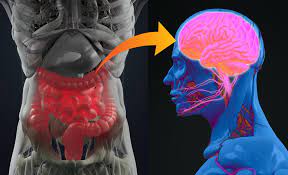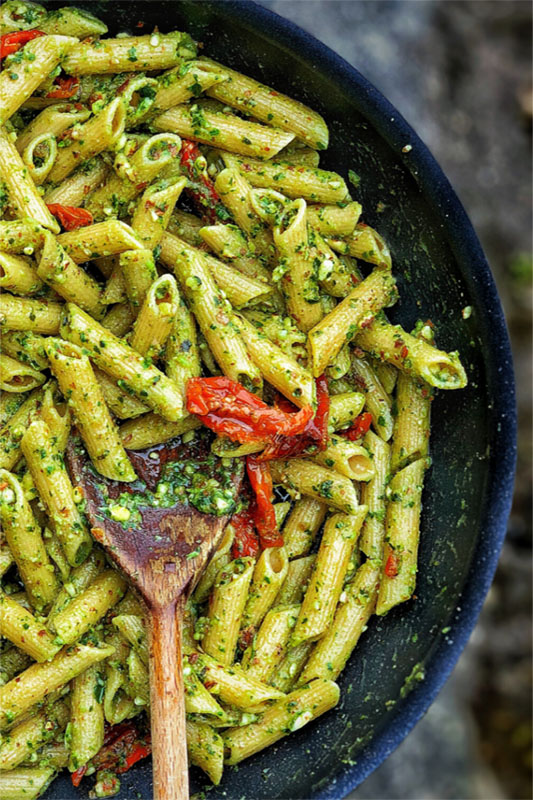How your gut affects your moods and mental health

The Gut Brain Axis
The gut and brain are connected through the gut-brain axis, which means that our gut health can have a significant impact on our mental health. A healthy gut microbiome (the population of microorganisms living in the gut) can help regulate mood, reduce inflammation, and improve brain function. On the other hand, an imbalanced gut microbiome has been linked to several mental health conditions, such as depression, anxiety, and stress. Furthermore, certain types of gut bacteria can produce neurotransmitters that influence mood, while others can influence the production of hormones such as cortisol, which plays a role in stress. To maintain good gut and mental health, it is important to eat a diet high in fibre, reduce stress, and avoid antibiotics and processed foods whenever possible.
In regards to mental health, butyrate is a short chain fatty acid that is made by the healthy fibre loving microbes in our gut. It has been suggested to have a positive impact in terms of moods and mental health as it can cross the blood-brain barrier and has been shown to have effects on neurotransmitter production, inflammation and oxidative stress, which are all involved in various mental health disorders.
The role of Vagus Nerve
The connection between the gut and the brain via the vagus nerve is referred to as the gut-brain axis.
Studies have shown that the vagus nerve plays a crucial role in the communication between the gut and the brain, and influences various functions including digestion, immunity, and mood. The vagus nerve transmits information from the gut to the brain and vice versa, allowing the brain to respond to changes in the gut and modulate gut function.
In regards to mental health, research suggests that an overactive or underactive vagus nerve can contribute to depression, anxiety and other mental health disorders. The vagus nerve has been shown to regulate the release of neurotransmitters, such as serotonin, that play a role in mood regulation, and can also modulate the body’s stress response.
Therefore, the vagus nerve is considered a key factor linking the gut and brain, and can have a significant impact on both gut and mental health.
The role of diet in terms of gut health and its influence on mental health
Diet has a significant impact on gut health, and therefore can also influence mental health. Some of the foods that are beneficial for gut health can positively impact mental health. These include:
- Fibre-rich foods: Foods high in fibre, such as fruits, vegetables, beans and whole grains, can promote the growth of beneficial gut bacteria and improve gut motility.
- Fermented foods: Fermented foods, such as kim chi and sauerkraut, are rich in probiotics that can help maintain a healthy gut microbiome.
- Polyphenol-rich foods: Foods rich in polyphenols, such as berries, nuts, and green tea, have anti-inflammatory effects and can support gut health.
- Omega-3 fatty acids: Omega-3 fatty acids all have anti-inflammatory effects and can support gut barrier function. Plant-based sources include walnuts, ground flax seeds, chia seeds
- Prebiotic foods: Prebiotic foods, such as onions, garlic, and asparagus, provide fuel for beneficial gut bacteria to thrive.
It’s important to note that everyone’s gut is unique and what works for one person may not work for another. A diverse plant based or plant predominant diet that includes a variety of nutrient-dense foods can help maintain a healthy gut and positive mental health.
If you want to learn more about the role of diet and what foods you can eat to super charge your gut, check out this in depth article we wrote on the gut along with Dr. Alan Desmond, Consultant gastroenterolist.
If you are looking for some gut health recipes – here is a link to lots of our gut health recipes













